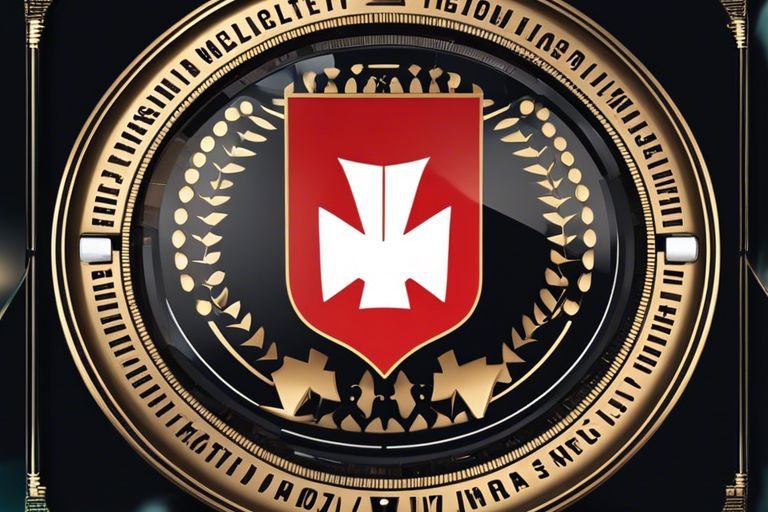Significance of iGaming Licenses in Malta

It’s vital for companies in the online gaming industry to understand the significance of obtaining iGaming licenses in Malta. Malta has positioned itself as one of the world’s leading jurisdictions for licensing online gaming operators, providing a secure and regulated environment for businesses to thrive. With a Malta Gaming Authority (MGA) license, companies can access European markets and gain credibility with players worldwide. This blog post will explore the importance of iGaming licenses in Malta, detailing the benefits and advantages that come with being licensed in this reputable jurisdiction.
The Evolution of iGaming Legislation in Malta
Historical Context
Evolution of iGaming legislation in Malta dates back to 2001 when the Malta Lotteries and Gaming Authority (now Malta Gaming Authority) was established. The regulatory framework was created to provide a secure and trustworthy environment for online gaming operators and players. Over the years, Malta has become a leading jurisdiction in the iGaming industry, attracting numerous international gaming companies seeking a license in a reputable jurisdiction.
Recent Developments and Amendments
iGaming legislation in Malta has continuously evolved to keep pace with the industry’s advancements and technological changes. Recently, the Maltese government made significant amendments to the Gaming Act, enhancing player protection measures, responsible gaming initiatives, and anti-money laundering regulations. These updates reflect Malta’s commitment to maintaining a robust regulatory framework while ensuring a fair and transparent gaming environment for all stakeholders.
Types of iGaming Licenses in Malta
You, as an operator in the iGaming industry, need to be aware of the various iGaming licenses available in Malta. These licenses are issued by the Malta Gaming Authority (MGA) and cater to different types of iGaming activities.
| License Type | Description |
| Class 1 License | For operators offering games of chance based on a random number generator. |
| Class 2 License | For operators offering fixed odds betting, pool betting, and spread betting. |
| Class 3 License | For operators offering peer-to-peer gaming, poker networks, and betting exchanges. |
| Class 4 License | For software vendors who provide management and hosting facilities to operators. |
Class Descriptions and Requirements
Malta offers different classes of licenses to accommodate a variety of iGaming activities. Each class has specific requirements that operators must meet to obtain and retain the license. For example, Class 1 requires operators to have a minimum issued share capital of €100,000 and a €500,000 unimpaired paid-up share capital.
Process of Obtaining a License
With the growing popularity of iGaming, the process of obtaining a license in Malta has become highly competitive. The MGA has stringent requirements in place to ensure that only legitimate and financially stable operators are granted licenses. Operators must submit detailed documentation, undergo thorough background checks, and demonstrate their ability to adhere to strict regulatory standards.
Requirements include having a comprehensive business plan, a clear and transparent ownership structure, and sufficient funds to operate the business effectively. Furthermore, operators must also show a commitment to responsible gaming practices and player protection.
Knowing the specific requirements for each class of license is crucial for operators to successfully navigate the licensing process in Malta.
Impact of iGaming Licenses on Operators and Players
Benefits for License Holders
An iGaming license in Malta offers numerous advantages for operators. One of the key benefits is accessing the European market through a reputable jurisdiction. Obtaining a license demonstrates their commitment to transparency and compliance with stringent regulatory standards, which can enhance their credibility and attract more players.
Player Protection and Fair Play
Player protection and fair play are paramount in the iGaming industry, and Malta’s licenses prioritize these aspects. It helps players by ensuring that operators follow responsible gaming practices, such as setting deposit limits and offering self-exclusion options. Additionally, licensed operators must adhere to regulations that promote fair gameplay, such as using random number generators for games.
Operators that fail to comply with these regulations risk losing their licenses and facing severe penalties. For players, the Maltese licenses provide a sense of security and trust knowing that they are engaging with reputable operators who prioritize their well-being.
Regulatory Challenges and Compliance
Monitoring and Enforcement Mechanisms
Monitoring the iGaming industry in Malta involves robust mechanisms to ensure compliance with regulations. The Malta Gaming Authority (MGA) plays a vital role in overseeing licensees’ operations to prevent money laundering, fraud, and other illegal activities. Through regular audits and inspections, the MGA enforces strict guidelines to maintain the integrity of the industry.
International Collaboration and Standards
An necessary aspect of regulatory compliance in iGaming is adherence to international standards and collaboration with regulatory bodies worldwide. Malta’s recognition as a reputable jurisdiction for iGaming licenses hinges on its commitment to aligning with global best practices and standards set by organizations like the European Gaming and Betting Association (EGBA) and the International Association of Gaming Regulators (IAGR).
International collaboration ensures that Malta stays updated on emerging trends and threats in the iGaming sector. By participating in information sharing and adopting best practices advocated by leading regulatory bodies, Malta enhances its reputation as a trustworthy and compliant hub for iGaming operators.
The Future of iGaming in Malta
Industry Trends and Predictions
After a period of exponential growth, the iGaming industry in Malta is poised for more advancements in technology, increased global reach, and a shift towards more interactive and immersive gaming experiences. Regulatory bodies will continue to tighten their grip on the industry to ensure responsible gaming practices and prevent money laundering or fraud. The rise of mobile gaming and virtual reality technologies is expected to shape the future of iGaming in Malta, offering more personalized and engaging experiences for players.
Malta’s Position in the Global Market
Global competition in the iGaming sector is fierce, with several countries vying for market share. Malta has established itself as a key player in the industry, known for its stable regulatory framework, skilled workforce, and strategic location within the European Union. The Maltese government’s commitment to supporting the growth of the iGaming sector through favorable tax rates and infrastructure development has positioned Malta as a hub for iGaming innovation.
As the industry continues to evolve, Malta’s strategic partnerships with industry stakeholders and proactive approach to regulatory compliance will be critical in maintaining its competitive edge in the global market. With a strong track record of success and a reputation for excellence, Malta is well-positioned to lead the way in shaping the future of iGaming on a global scale.
Summing up
With these considerations in mind, it is evident that iGaming licenses in Malta hold significant importance in the industry. The Malta Gaming Authority’s stringent regulations and reputation for excellence provide a safe and secure environment for operators and players alike. Holding a license from Malta can enhance credibility, trustworthiness, and market access for iGaming companies while ensuring adherence to strict standards of operation. As a leading jurisdiction in the gaming industry, Malta’s licenses signify a commitment to quality, integrity, and responsible gaming practices, making them highly coveted and valued in the global market.
FAQs:
What is the significance of obtaining iGaming licenses in Malta?
Obtaining iGaming licenses in Malta signifies adherence to stringent regulatory standards, providing credibility and access to European markets for gaming operators.
What types of iGaming licenses are available in Malta?
Malta offers various classes of licenses, including Class 1 for games of chance, Class 2 for fixed odds betting, Class 3 for peer-to-peer gaming, and Class 4 for software vendors.
What are the requirements for obtaining an iGaming license in Malta?
Operators must meet specific criteria such as having a clear business plan, transparent ownership structure, and sufficient capital, along with a commitment to responsible gaming practices.
How does holding an iGaming license benefit both operators and players?
License holders gain credibility, market access, and adhere to player protection measures, ensuring fair play and responsible gaming practices for players.
What is the future outlook for iGaming in Malta?
The industry is expected to see technological advancements, increased global reach, and continued regulatory oversight, solidifying Malta’s position as a leading hub for iGaming innovation.
Michael
With over 20 years experience in web design, SEO and website promotion I always give you an expert advice in regard to any issues related to your Site Design, SEO, Internet Marketing, Promotion, Backlinks, Site Content. In order to help you find out what is missing or can be improved and get higher rankings in Google and more traffic.
Recommended Posts

Legal Nuances of Operating an Online Casino
May 17, 2024

The World of Wearable iGaming Tech
May 17, 2024

Going Live – Surge of Live Stream Gambling
May 17, 2024




